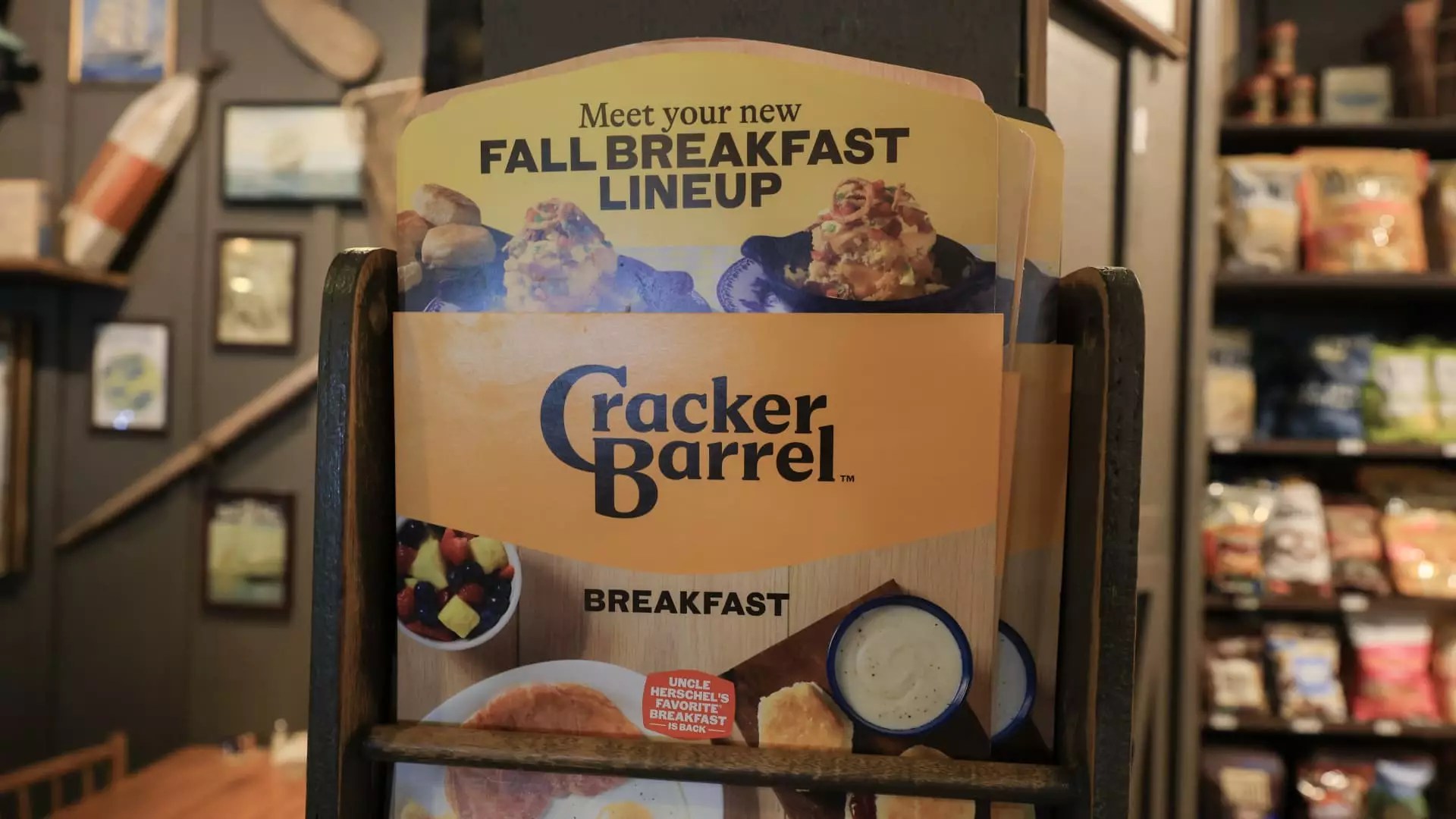In the recent upheaval surrounding Cracker Barrel, the company’s decision to overhaul its logo and rebrand has sparked more controversy than anticipated. The bold move to strip away the traditional emblem—featuring a man leaning against a barrel—and replace it with a minimalist wordmark on a yellow background was intended to modernize the brand. Yet, this choice appears to have backfired, revealing a deeper vulnerability: the erosion of authenticity that forms the backbone of consumer trust. While the company insists that the change aligns with a “strategic transformation,” it conveniently sidesteps the core issue: authenticity is not something that can be manufactured through superficial design tweaks. For a brand rooted in the ideals of country hospitality, the removal of symbols that evoke tradition risks alienating long-standing customers who see the logo as a badge of honest Americana.
What’s more troubling is how this move exposes the fragile intersection between corporate rebranding and cultural politics. The emphasis on aesthetics—choosing colors inspired by scrambled eggs and biscuits—shows an effort to evoke familiarity. Yet, in a climate dominated by social media outrage, these gestures attempt to mask a deeper shift: a pursuit of inclusivity that some perceive as diluting traditional American values. The core problem isn’t merely the logo’s visual change but its underlying message—whether the rebranding subtly signals a departure from the visceral, community-centered identity that made Cracker Barrel a family favorite.
Cultural Sensitivities or Political Wokeness?
The backlash from conservative circles underscores an increasing trend: brand identities now act as battlegrounds for cultural disputes. Critics argue that the logo change was driven by a desire to please progressive social agendas—masking what some see as a retreat from American roots. Donald Trump Jr. and others frame the redesign as an effort by the CEO to erase traditional American symbols, hinting instead at a “woke” agenda aimed at broadening diversity and inclusion at the expense of heritage. This narrative taps into a broader suspicion that corporate America is increasingly swayed by political correctness rather than consumer preferences or longstanding values.
The truth, however, is more nuanced. While the company claims that its “rich history of country hospitality” remains unchanged, the visible efforts to modernize and refresh the interior and aesthetic elements suggest a different priority: appealing to a younger, more diverse demographic that values progressivism. For some conservative consumers, this feels like a betrayal—an unwelcome abandonment of traditional American symbols for the sake of political correctness. The fierce social media debates reveal that in the age of online polarization, companies are now forced to navigate a minefield where every branding decision can have explosive political repercussions.
The Risks of Politicizing Brand Strategy
Cracker Barrel’s struggles highlight a broader issue: the perilous gamble of intertwining corporate branding with social politics. While some may see this as a savvy move to stay relevant and inclusive, it leaves the company vulnerable to criticism from those who view such changes as superficial and disconnected from the values they hold dear. Traditionalists who craft the fabric of the American heartland might view these aesthetic adjustments as a capitulation—a capitulation that could erode customer loyalty and shareholder value in subtle, yet profound ways.
The recent share decline—roughly 10%—may be more than just a market reaction; it could symbolize a wider sentiment of distrust toward corporate initiatives that appear to prioritize social positioning over core business values. The fact that other corporations like Anheuser-Busch and American Eagle have experienced similar swings based on social media backlash underscores a dangerous trend: corporate success increasingly hinges on navigating the volatile currents of political correctness.
Cracker Barrel, with its modest market cap and loyal customer base, now stands at a crossroads. Will they double down on their heritage and resist the temptation to chase fleeting social approval, or will they further capitulate in hopes of broadening their appeal? The answer may define how companies balance authenticity with modern inclusivity—without sacrificing the integrity that fuels long-term success.


Leave a Reply